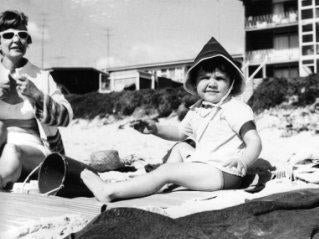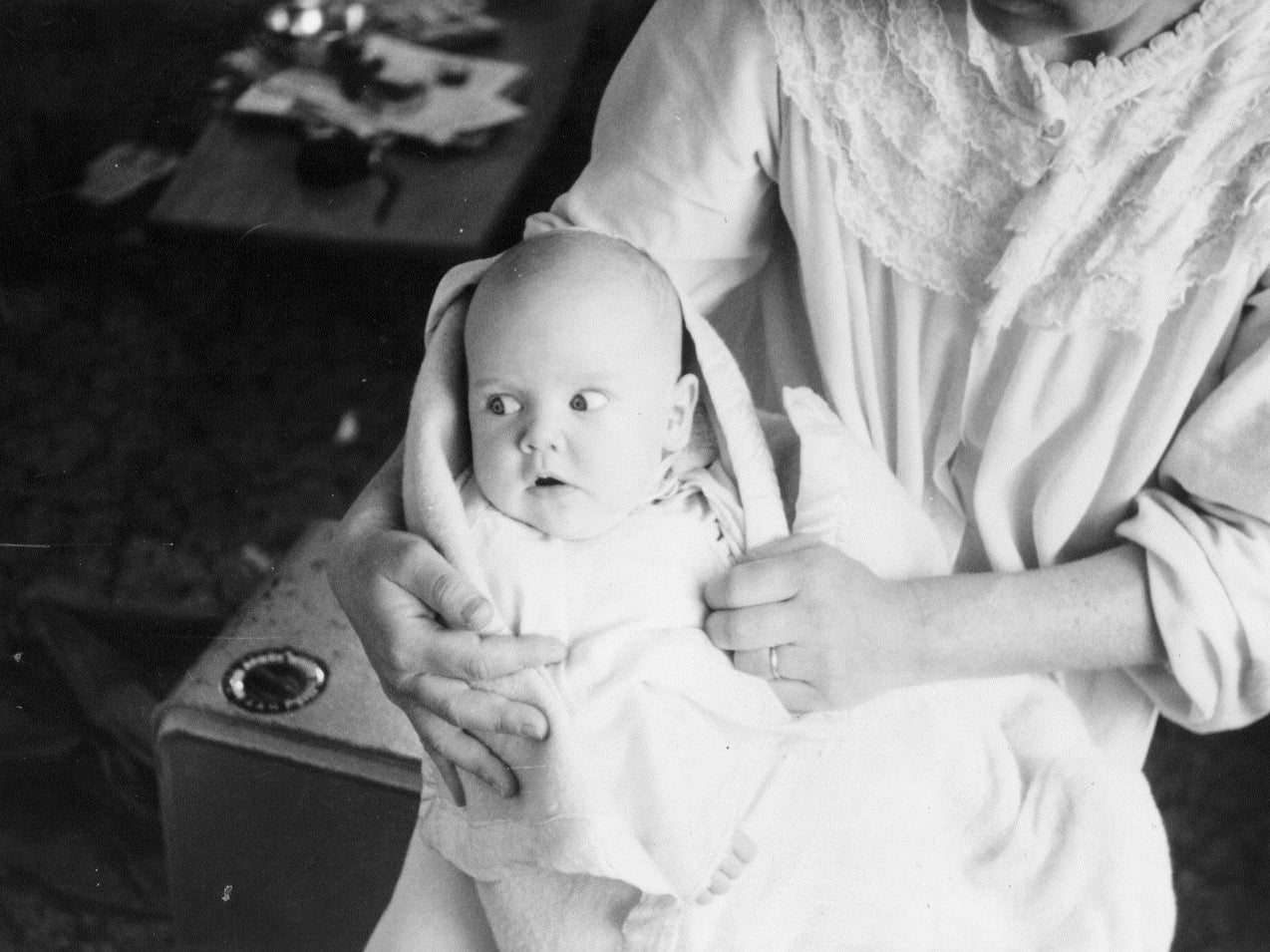Suicide has always been a part of my family, yet I'm repeatedly silenced when I try to talk about it
Yes, having a mother who killed herself has caused me enormous pain and distress – because she’s dead. The method of her death doesn’t make it any worse, but most people can't get their head around this

Last year, when I was travelling overseas, I met a lovely woman called Cristina. We immediately talked as if we were old friends, and like people who’ve known each other forever, we talked about family. Cristina came from a large and loving European clan, and naturally wanted to know about mine. When she learned that my mother was dead, the first thing said was, “I’m so sorry.” Next she asked how she died. Normally I’d just fudge an answer but this time I told the truth. “She killed herself. She took an overdose.” Even though we’d enthusiastically exchanged email addresses earlier on, I never heard from Cristina again.
I don’t often tell my story, because when I do, people ask questions which elicit answers they don’t like to hear, and demand emotions of me I don’t feel. Cristina was no different. She expressed such shock on my behalf, not about the death, but about the method, and I don’t understand why. Growing up, suicide was just a part of my story, and now it’s a family history few people are comfortable talking about.
My mother suffered from untreated depression, low self-esteem and a near demonic insistence on perfection. Not surprisingly she was rarely happy. On my ninth birthday she was in a private clinic being treated for insomnia and melancholy, and although I didn’t understand it, I grasped that her sadness wasn’t down to me. I knew she hadn’t been clinically diagnosed of “unsound mind” like the woman in the room next to hers at the treatment centre. The one who’d killed her baby, then burned the mattress. Mum was highly intelligent and always taught me to think for myself, but when I started to voice opinions she didn’t agree with, soon after I turned 12, we began to argue. A lot. Once our words were so violent a neighbour in our nice middle class neighbourhood called the police.
The first time my mother threatened to kill herself I was 14. We’d had another fight which ended in her telling me she was going to kill herself. I’d read Sylvia Plath by then and I remember leaving the house fully expecting to come home to her dead in the kitchen with her head in the oven. I took the dog and we walked up the hill, past all the picture perfect homes hiding their nice suburban families. The weather was good and the sky was very blue but it wasn’t too hot. Even now I can feel the warmth of the sun on my back and the rage of our argument boiling through me. Those things are still tangible although I’ve long forgotten what sparked that particular dispute. I don’t remember feeling anything about the idea of my mother killing herself. Nothing at all. When I came home the oven door was shut, mum was in her room and life continued.
Growing up, suicide was just one of many topics up for debate round the dinner table each night, along with feminism, the aftermath of the Vietnam War, and whose turn it was to do the washing up. My earliest memories of talking about it date back to when I was eight, when my grandmother died. Mum came back from visiting her and told me what she’d done. How she’d helped grandmother take the sleeping pills she’d obtained and stayed until the tablets took full effect. Neither of her two sisters had wanted to do it, although they knew their mother, in her nineties at the time, didn’t want to live any longer. We were standing in the kitchen when mum told me, and immediately the room was flooded with the scent of lavender. Huge bushes of it grew along the drive at my grandmother’s house, and she sewed the dried flowers into little sachets which she kept in her underwear drawer. As soon as I smelt it I knew she’d come to say goodbye. Distressed as I was to lose her, I was too young to be shocked by the means.
This is my family history and the tenor of my life never seemed out of the ordinary to me. Neither did the idea of my mother killing herself, but, even aged eight, I knew assisting with a suicide was an offence under the law in Australia, where we lived. Religion played no part in my socialist communist upbringing, so I’ve never understood the moral dilemma attached to ending one’s own life. I’ve always understood suicide as a choice – not a pleasant one to think about, of course, but one that people do make and that we should be able to talk about. As a choice, once the decision is made, it’s to be acted on with great care and forethought. Dramatic cinematic scenes of people killing themselves in a moment of despair don’t depict the only reality.
The next time my mother attempted suicide she made no threats beforehand. A concerned neighbour who lived in the apartment underneath mum’s heard her crashing around overhead and phoned my sister, who rushed over and called an ambulance. Years later my sister revealed she hadn’t rung for help straight away. Almost tonelessly, with little to no emotion in her voice, she told me she arrived to find mum unconscious in the bedroom, an empty pill bottle beside her. Unsure what action to take, she went to the kitchen and opened the window wide before lighting up a cigarette. She stood there for maybe 20 minutes, trying to decide on the right thing to do. Her anxiety was both about the decision she had to make, and the fact she was smoking in the house. As well as strict instructions to take our shoes off before entering, smoking was absolutely forbidden inside mum’s apartment. Even as she lay dying, mum was to be obeyed.
My sister knew as well as I did that mum’s act wouldn’t have been the result of a momentary unhappiness but a carefully considered choice, yet she called for an ambulance anyway. When my mother came round to the sight of a nun solicitously bending over her, after having her stomach pumped in a Catholic-run private hospital, she was not a happy woman. Much to my horror her first words to the nun were “f*** off”. That was the only time I ever heard her swear.
I was 18 and living away from home when it happened. Several times a week I’d visit my mother, who’d been declared medically unfit for work and languished, bitterly discontent, in an apartment that was two buses and a train ride away from my home. After bringing me up to think for myself and be independent, she regularly taunted me by attacking my opinions and questioning my ability to succeed in life. We fought constantly and it was both tacitly and explicitly agreed, regardless of which family member you asked, that I was to blame for mum’s latest attempt.
In the following years she refused counselling and continued to prepare for death. She joined a local right-to-die society, but didn’t need to press me with their literature, because euthanasia was the only topic on which we ever agreed. Nonetheless when she asked me if I’d be the one to help her die, I refused to give an answer. She called me a coward so I abruptly left her apartment. I didn’t want to help her die. I was only 23. More importantly, even though I knew it was what she wanted, people would blame me. That’s how it was in my family. She never asked again and I knew that without a guarantee the next attempt would work, she wasn’t prepared to replay it on her own.
My mother successfully killed herself when she was 76. She did it knowingly, with great forethought and intent. At a time of her choosing, in a way she felt most suitable, in a place she felt most comfortable. Like my grandmother, she saw it as a reasonable option when her body began to fail her and she’d had enough of life. Although my mother also used the threat of suicide to try to manipulate me and make me feel guilty, I still believe it was her choice to make. Her six-page suicide note included an exact list of the pills she’d taken to ensure the post-mortem and coroner’s report proceeded quickly, and detailed instructions about selling her apartment, right down to supplying the name of the window cleaner we were to use.
I wasn’t the one to find my mother’s body, but when I did see her, lying cold in her bed in her flannel nightie, wearing dainty frilly ankle socks and a look of triumphant anger on her face, it was preferable to finding her hanged or covered in gore. She’d carried out her death strictly according to the rules of the euthanasia society, right down to thinking about the feelings and sensitivities of the people left behind.
Intellectually I understand that my words and these descriptions are shocking. My mother killed herself and I should be emotionally crippled and debilitated. Yes, having a mother who took her own life has caused me enormous pain and distress. Of course it has, because she’s dead, but the method of her death doesn’t make it any worse. She will remain dead no matter how she died. Most people can’t get their heads around this. Suicide is viewed as something so unspeakably horrific no one wants to talk about it.

I’m well aware of this, so, usually, I say nothing, but it’s really difficult. It’s normal to seek out commonality with other people, and family is one of the first topics to come up, because it’s considered a safe and productive way to get to know one another. Everyone has something to say about their family.
My parents are both dead, and sharing this fact should elicit natural sympathy, but the usual bonds created from the intimate, personal details one gives can’t happen if I tell the truth about my mother. On the few occasions I have, I’ve instantly regretted it. Universally the reaction is one of shock, mixed with distaste, then guilt. In their distress at what I’m telling them, people are consumed by the emotions my words provoke, and they don’t think to offer the usual condolences. When they finally recognise their omission, they feel terrible and don’t know how to bridge the gap. Even the most unemotional person is mute, because laws against suicide have made it inarguably wrong for such a long time that no language has developed in which to talk about it. All that exists are inadequate words spoken hurriedly, laced with discomfort and shame. Normal platitudes don’t apply.
If my audience is religious, their sympathy usually loses out to their theological outrage. They can’t console me by telling me my mother’s gone to a better place, because they believe she’s committed a mortal sin and now resides in hell. They also feel I’m in the wrong somehow, by association. Ultimately, this results in them feeling guilt tinged with a disturbed confusion, because they can’t reconcile the two.
Whatever their reasoning, the listener falls uncomfortably silent, the smile long gone from their face. Their stillness tells me they don’t know what to say or do next. The emotional and moral fallout is palpable and I’m the one who has to deal with it. I’m not looking for their sympathy. Telling the truth isn’t a form of therapy to help me recover from a traumatic event that blighted my life, and I certainly don’t want to be held to account for the moral or legal consequences of my mother’s actions. Yet the responsibility for their discomfort now lies with me. What should just be a fact of my life has become a nasty problem I’ve foisted onto an unwilling set of ears.
The alternative is to tell them a version of the truth I know they’ll be happy to hear. When someone says “Oh, I’m sorry to hear about your mother. Was it sudden?” I could simply reply, “Yes. (It was, she didn’t tell anyone what she was planning.)”. If they ask, “How did she die?” I could just answer, “Her heart stopped. (Well it did, just not without help.)” But I don’t want to do this. I want to be able to talk as freely about my mother ending her own life as I’m allowed to talk about my father dying from cancer.
Although there are now more government awareness campaigns and pamphlets available than ever before, people still don’t like to talk about suicide, except in muted, uncomfortable whispers. By staying silent or watering down the truth of my own experiences, I contribute to the idea that suicide in all its forms is something frightening and unfathomable, just as surely as those people who condemn it without debate. Unless we can open up an alternative dialogue about suicide, it will remain a shameful, private secret. There will continue to be no words to use that are free from emotional distress, legal constraints or religious judgement, and they tend to stop conversations before they can begin. In my family, suicide, however distressing for those left behind, is not a dirty word. It has always been about choice.
Maybe this is a good place to start.
If you have been affected by this article, you can contact the following organisations for support:
mind.org.uk
beateatingdisorders.org.uk
nhs.uk/livewell/mentalhealth
mentalhealth.org.uk
samaritans.org



Join our commenting forum
Join thought-provoking conversations, follow other Independent readers and see their replies